RULER OF THE UNIVERSE: ALEXANDER OF MACEDON, HELLENISTIC WORLD-HISTORICAL OUTLINE.
The three-hundred-year period of Hellenism falls on the time between the reign of Alexander the Great (336-323 BC), so after the classical period, "Athenian" at its beginning and the moment of August's victory and the control of the Hellenistic world by Rome in 31 AD.
It is interesting because of the wide changes that have taken place in politics and other areas of Greek life, and above all because of the inclusion of territories ruled by Alexander, which stretched from Greece to Afghanistan. The influence of the empire on the occupied areas was exerted by newly founded or extended cities, which quickly gained dominance over local cultures.
Alexander inherited from his father Philip, a state that fully dominated over Greece. He undertook the creation of a universal Monarchy based on possessing classes originating from Greece, Macedonia or eastern countries. However, the culture was strictly Greek, and the cultural and political scene was far from liberal pluralism. Then he took the crusade to the east, motivated by the desire to punish the Persians for the actions of Xerxes from 150 years ago.
Alexander’s further history is arranged in a romantic tale - half real and half mythologized. During one-year he gained control over Asia Minor, and the prophecy from Gordium describing him as the future ruler of Asia was to be fulfilled a month later, when Darrius’s army was defeated in the Battle of Issos (although Darius himself escaped). Then Alexander reached for Phoenicia and Egypt, and in the oracle, in Siwa Oasis he obtained the title of "ruler of the universe" and "son of Zeus-Ammon", set off for Mesopotamia, where he eventually defeated Darius.
The development of the empire was not just about conquest: Alexander deftly extinguished revolts and founded new cities. After controlling Afghanistan, he made an unsuccessful attempt to take over Punjab, from where, due to the rebellion of his own soldiers, he was forced to return to Baluchistan. The return march was catastrophic and reminiscent of Napoleon's campaign in Moscow. Alexander died in 323 BC in Babylon.
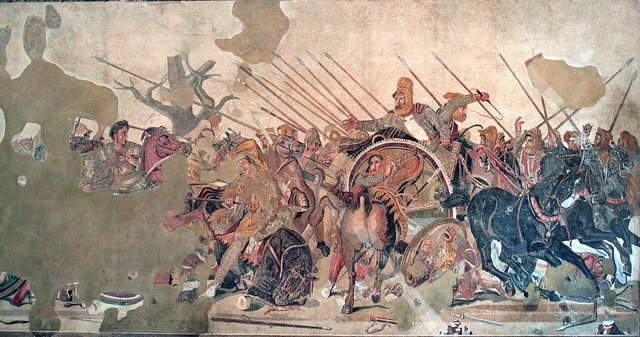
Detail of Alexander Mosaic, showing Battle of Issus, from the House of the Faun, Pompeii Author: Magrippa.
He left behind conquered lands and the monarchical system. Until now, this system was foreign to the Greeks but typical of the Macedonians. His style of domination aroused expectations of the successors to the throne and forged a canon of the future ruler, who stood out against the background of his appearance, attitude, and arrogance of his subjects.
After Alexander's death, there was a period of fighting for succession that lasted about 20 years. In 275 BC there were four Hellenistic kingdoms that had control over the Mediterranean basin. This state of affairs continued until Rome conquered Greece. The first of the kingdoms was Egypt, ruled by Ptolemy’s dynasty. This dynasty remained in power until its last representative Cleopatra, defeated by August in 31 BC. The Ptolemies controlled Libya, southern Syria, Cyprus, the areas of today's southern Turkey and the Aegean Islands.
In the east, Babylon was under the rule of the Seleucids from the year 312, who had the largest territory among the Hellenic rulers. The centre of their state was in Syria, and the power reached the areas from western Turkey to Afghanistan. The first signal of the approaching end of this state of affairs was the liberation of Bactria (Afghanistan) in 256 BC and the Partia, which detached a vast area in the East. In addition, the western territories, together with their centre in Pergamum, have become detached due to the actions of the Attalides, in particular, Attalos I, who in 238 BC became the first king of the newly created state. In 133 BC the state was given back to Rome and the Seleucid authority, due to internal conflicts, decreased to only a fragment of Syria, which in 64 BC was also absorbed by Rome.
Macedonia became an arena of murder committed on Alexander’s dynasty, and in 276, when Antigonus II Gonatas seized power, Antagonids took over for the period up to 168 BC.
The spread of the Hellenic empire led to dramatic cultural changes in the conquered lands. Already from the Peloponnesian Wars, the economic and political collapse of Greek rule followed and cultural centres began to move eastward. New or expanded Hellenistic cities, including Alexandria, Antioch, and others, gained independence and attracted the Greek emigrants - more independent and entrepreneurial subjects looking for better living conditions in the newly acquired areas. In Greece, there was a drop in the number of births, which Polybius from Megalopolis attributed to the desire of the Greeks to lead a comfortable life. Greece was poor, and the economic and social crisis was the cause of riots. King Cleomenes III undertook the reform of the ossified political and social system, strengthening, among others, the king's authority, which also did not reverse the crisis.
In addition to Athens, new cultural centres developed and political life was concentrated in the homes of Hellenic rulers. Culturally, this world showed a great cosmopolitanism, where the culture was reserved for the cultural elite with centres in Alexandria and Pergamum (II BC). The philosophical schools were still strong in Athens.
The first state that succumbed to Rome was Syracuse. Then, Macedonia fell in three wars. Thanks to the internal conflicts, in 146 BC Rome conquered the Achaean Union. The armed conflict led to the transformation of Greece into the Roman province. Thus, the last trace of Greek political independence disappeared. In the second and first century BC, all of Hellenistic Greece had succumbed to Rome, including Pergamum in 133 BC. The last of these countries was Egypt, where Antony and Cleopatra lost in 31 BC at Aksum, thus closing the conventional boundary of Hellenic Greece.
The events in politics, history and culture of the Greek world have made Macedonia and Greece the terms that have taken on a new meaning over time. The rule of the Macedonian rulers amounted this small and underdeveloped country to the rank of hegemon of the world known to the people of that time. Alexander, a thirty-two-year-old man, conquered all nations encountered between the Adriatic Sea and the Indus River, could have also taken over Rome and Carthage, if he had lived twice as many, Macedonia and Greece could be the center instead of lying on the outskirts of the empire.
References
*Images: sources linked below
- Green, P. Hellenistic History and Culture, University of California Press, 1996
Boardman, J., Griffin, J., Murray, O. The Oxford History of the Classical World, Oxford, 1986
Kumaniecki, K. Historia kultury starożytnej Grecji i Rzymu, PWN, Warszawa 1964
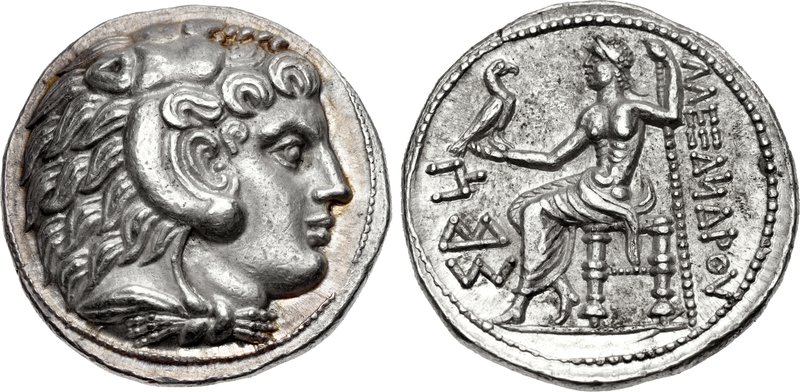
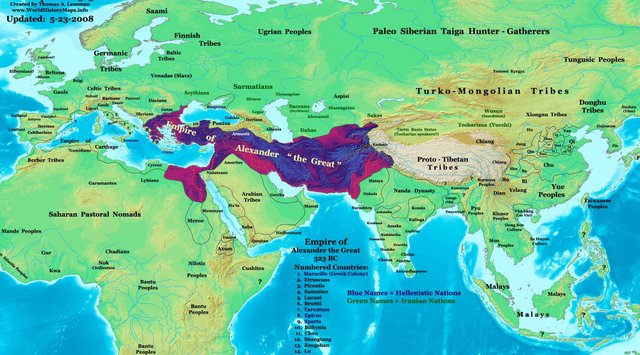
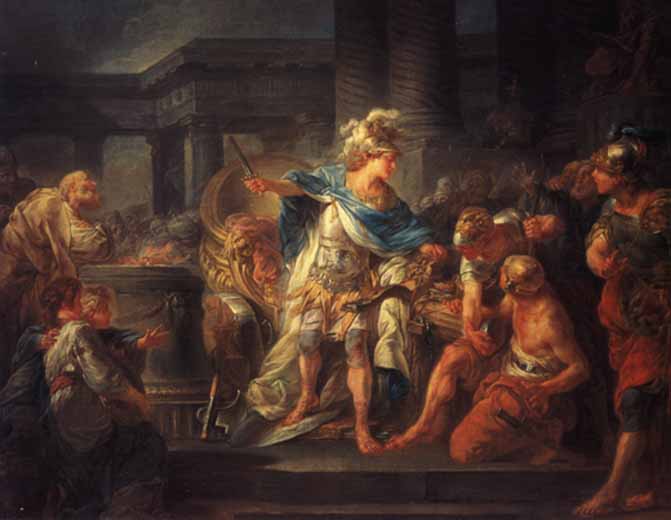

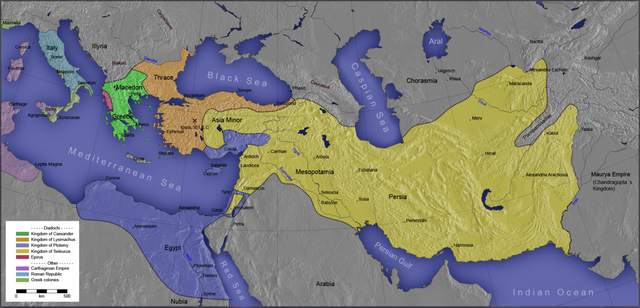
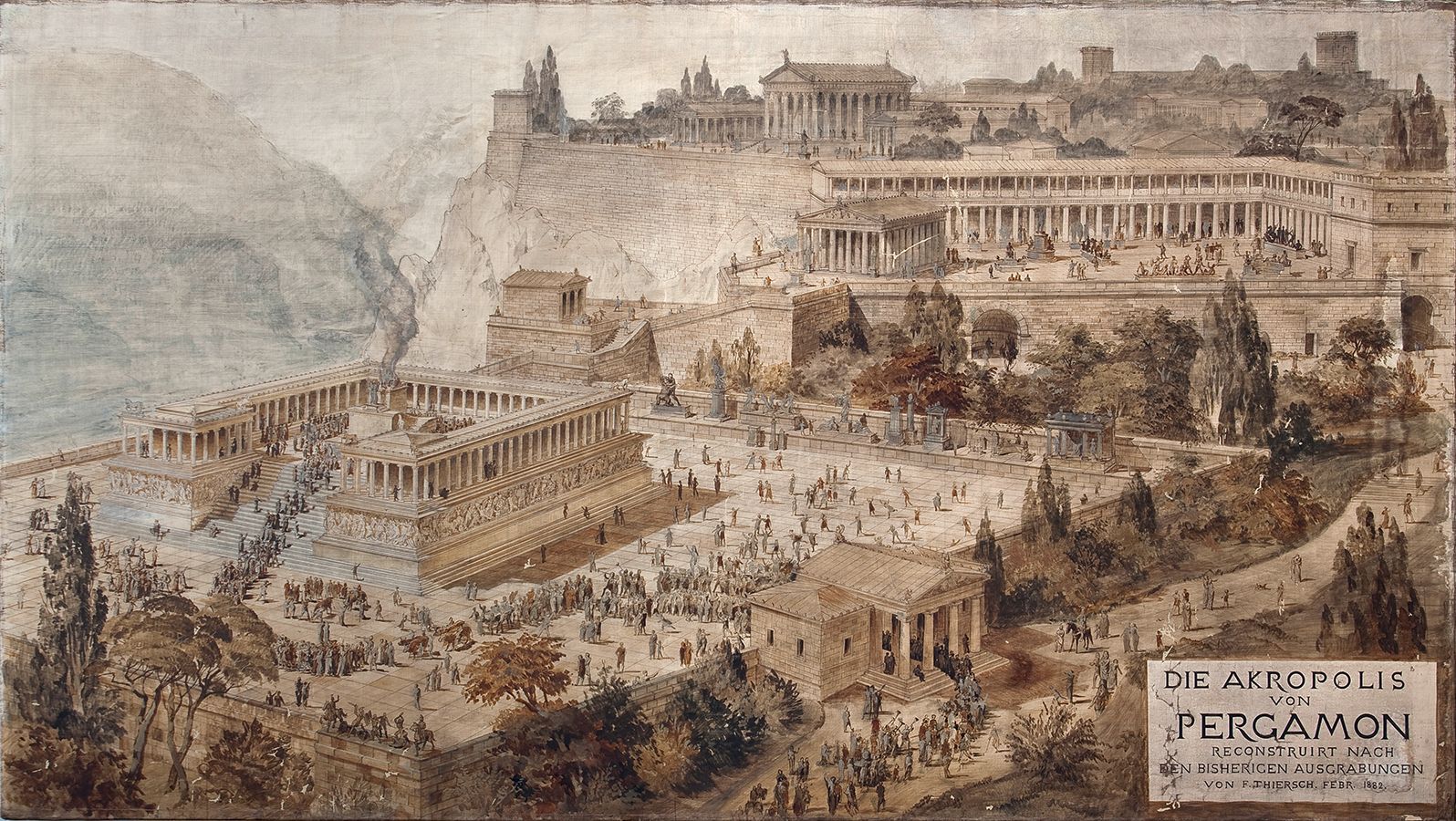
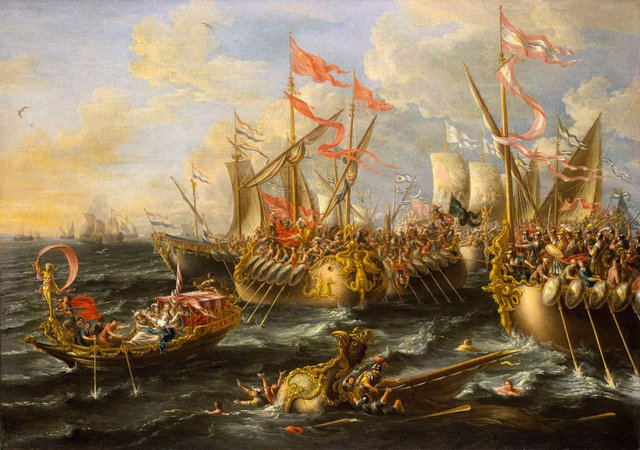
DISCLAIMER: dropahead Curation Team does not necessarily share opinions expressed in this article, but find author's effort and/or contribution deserves better reward and visibility.
to maximize your curation rewards!
with SteemConnect
12.5SP, 25SP, 50SP, 100SP, 250SP, 500SP, 1000SP
Do the above and we'll have more STEEM POWER to give YOU bigger rewards next time!
News from dropahead: How to give back to the dropahead Project in 15 seconds or less
Thank you Team !
English
Helloo @highonthehog
Me, @menulissejarah (writing history)
I see articles and photos on your post, have a historical, education, and cultural value of an area. This post is certainly very interesting to add insight in the field of history.
If you do not mind, I will resteem this post in my account. Thanks.
Date:April, 1, 2018
Indonesia
Helloo @highonthehog
Saya, @menulissejarah (#menulissejarah)
Saya melihat artikel dan foto pada postingan milikmu, memiliki nilai sejarah, pendidikan, dan budaya suatu daerah. Postingan ini tentunya sangat menarik untuk menambah wawasan di bidang ilmu sejarah.
Jika kamu tidak keberatan, saya akan resteem postingan ini di akun saya. Terima kasih.
Tanggal: 1 April 2018
amazing historical architecture
Congratulations, Your Post Has Been Added To The Steemit Worldmap!
Author link: http://steemitworldmap.com?author=highonthehog
Post link: http://steemitworldmap.com?post=ruler-of-the-universe-alexander-of-macedon-hellenistic-world-historical-outline
Want to have your post on the map too?
To listen to the audio version of this article click on the play image.

Brought to you by @tts. If you find it useful please consider upvote this reply.
Great post!
This makes me remembering my good old school days. I really do like history (and in particular the Greek and Roman periods), which may sound strange for a physicist, I know. :)
Noooo, not strange, come on it's great to have many interests! I studied archeology at the University of Warsaw and in the meantime, I was dealing with various interesting things, only seemingly connected and sometimes not related to anything, also professionally. But archeo remained my passion, however, it evolved from paleontology when I was a kiddo ;)
I have very little time to dig into anything else from physics, at the moment. Actually, Steem offers me a good way to learn about many different stuff which I won't do on other circumstances.
Are you a professionnal paleontologist?
I can imagine you are a busy being. Yes, it all makes sense when one can read real quality content and be sure that it's not a collection of fake stories. If I could I would spend more time reading, there are so many good posts I'm a bit sad that I'm missing out on this a bit, but in the end, we do what we can :)
Well, my professional life went into slightly different direction, I am currently not working as an archaeologist. And paleontology was present in my life only during my childhood ;)
Ah I see. Then it is more like a hobby today. Any connection to @zest by any chance? :)
Yes. Since I moved to another country all the ties with my university got cut. In the beginning, there was an idea to start my Ph.D. here in München but the conditions didn't come together, though I am still happy to write every now and then about some old cool stuff!
I had a chance to talk to him, got a lot of very valuable guidelines on how to structure my posts and so on. I was in South Africa recently and had a meeting with some steamians but unfortunately, haven't had a chance to see him. Can imagine you guys have quite a lot to do here-on top of your regular jobs ;)
Munich is a nice city. Have been there several times for work (and i know its airport very well ;) ).
Concerning the things to do, yes, the workload is huge. But we manage (so far) :)
indeed it is loaded with beautiful architecture and its museums' host worlds most famous artists. The weather is overall not so shabby and the surrounding mountains and lakes make it even more attractive place to live in. But I like Paris too, only good memories from there ;) Thank you for all the hopefully joyful effort you make for the sake of this community!
Awesome post! I invite you to visit our blog and vote us back! And of course to enjoy our content :)
Thank you, I will def have a look. ;)